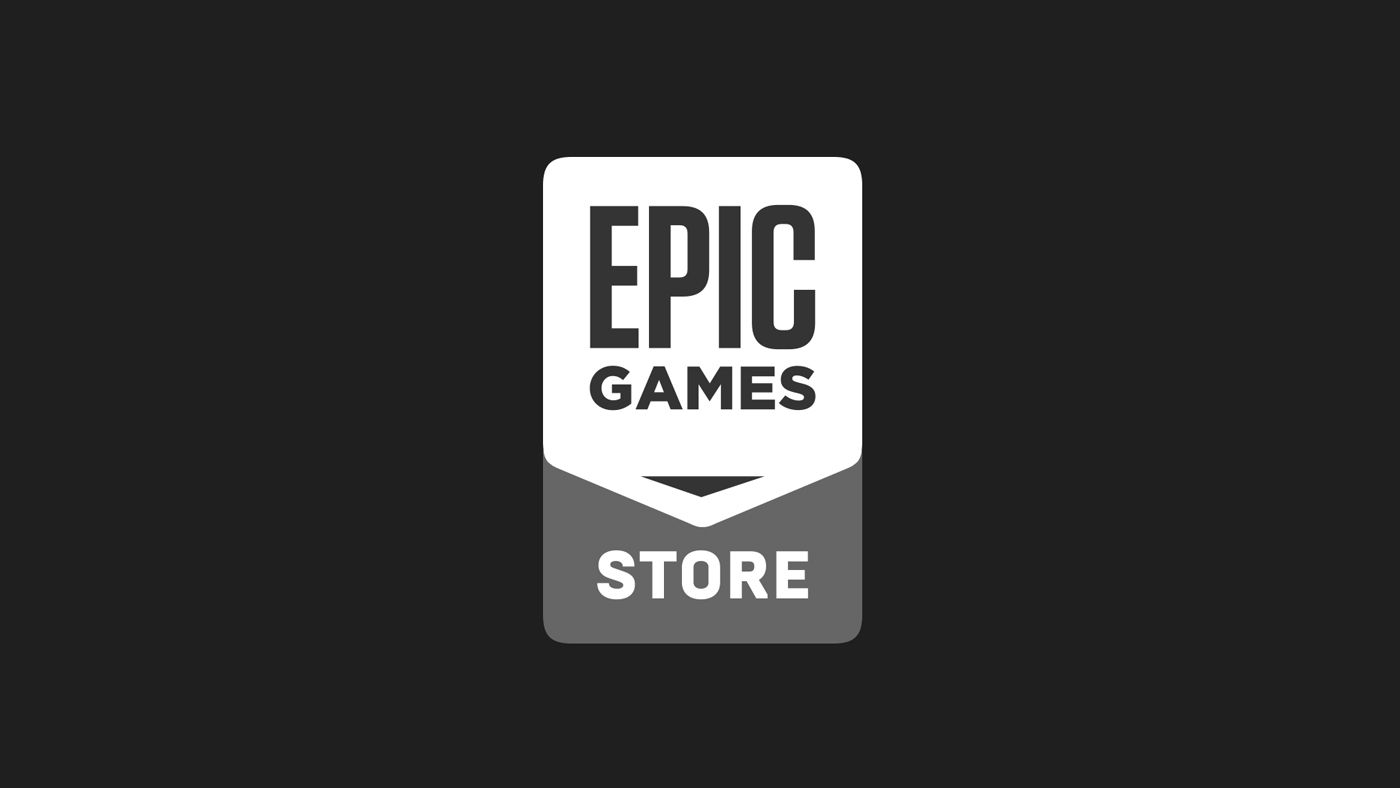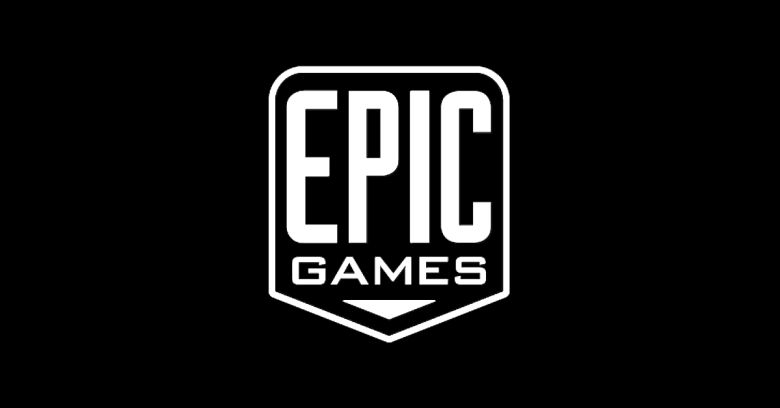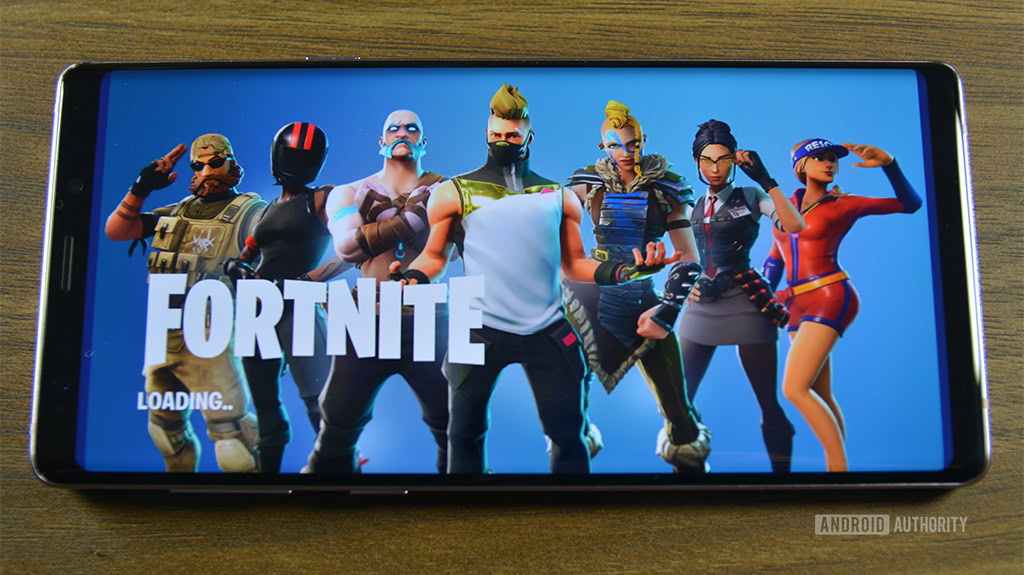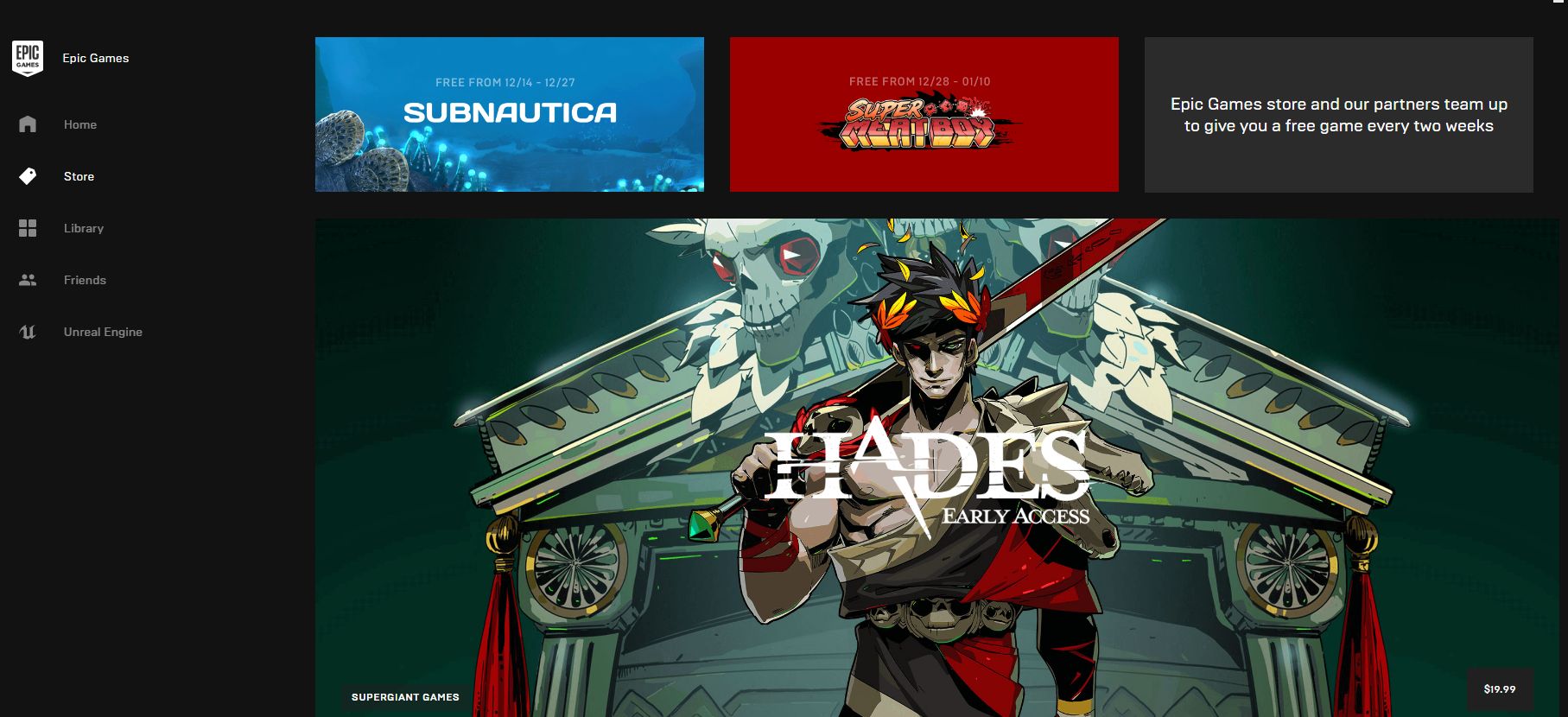Affiliate links on Android Authority may earn us a commission. Learn more.
Epic Games Store - Everything you need to know
Published onJanuary 13, 2019

In December 2018, developer Epic Games surprised many people in the gaming industry by announcing and quickly launching the Epic Games Store. This new digital marketplace not only offers games made by Epic itself but from third-party developers as well. It’s already being touted as a major competitor to Valve’s Steam game store on the PC and Mac side, and could even attract Android game developers away from the Google Play Store when it launches for that OS sometime in 2019.
So why would the company behind the Unreal Engine, and games like Unreal, Unreal Tournament, Gears of War, and now Fortnite want to enter another business? Can it succeed? Here’s everything we know about the Epic Games Store, along with some speculation on the future of Epic’s latest venture.
What is Epic Games?

Epic Games was founded by its current CEO, Tim Sweeney, in 1991 under the name Potomac Computer Systems. Later that year, Sweeney released his first game, ZZT. It was a sales success, and Sweeney decided to give his company a new name, Epic MegaGames, in 1992 (the name was shortened to just Epic Games in 1999). The company grew as it released games it developed itself and published games made by other studios. In 1998, Epic Games released Unreal, a sci-fi first person shooter that was the first game to use the company’s in-house Unreal Engine.
Sales of Unreal were excellent, and Epic also gained revenue by selling the rights to use the Unreal Engine to other game developers and publishers. It continued releasing games, including Unreal Tournament, and the first four games in the popular Xbox 360 Gears of War shooter series. In 2017, Epic released Fortnite, a survival-shooter game that became a worldwide phenomenon after it launched a Battle Royale multiplayer mode a few months later.
Did Fortnite help to launch the Epic Games Store?

The release of Fortnite by Epic in 2017 may have been a test run for the company’s plans to launch its own digital game store. However, it appears Epic may have been planning such a store even before the release of Fortnite. In 2015, it released Shadow Complex Remastered, a revamped version of its 2009 platform action game, via its own storefront. It also released the (now abandoned) revamped version of its FPS Unreal Tournament via its own store.
The launch of Fortnite on Epic’s PC game storefront, and later the release of the game on Android outside the Google Play Store, seem like more test runs to find out if the developer could handle such a business in hindsight. Now the Epic Games Store is more than just a place to get Epic’s current games; it’s also available to third-party developers as well.
What makes the Epic Games Store stand out?

At the moment, three big factors make the Epic Games Store stand out from competition like Steam and Google Play. One of them affects game fans directly, and the other two will be important for developers and publishers.
For gamers, Epic has promised it will give away one free game every two weeks until the end of 2019. Unlike Steam’s free game weekends, all of the free games given by the Epic Games Store are for gamers to keep after they download them. The giveaways begin Dec. 14 with Subnautica, the underwater survival game from developer Unknown Worlds.
Epic has also announced it will only take 12 percent of the revenues generated by third-party games in the Epic Games Store, compared to the usual 30 percent revenue sharing Valve takes from games published on Steam. Google takes the same percentage from games and apps published via the Google Play Store. In an interview with Game Informer, Epic CEO Tim Sweeney said even with that lower percentage of revenue, the Epic Game Store can still be profitable.
In addition, if you develop your game using Epic’s Unreal Engine 4, and publish it via the Epic Games Store, Epic will take its normal 5 percent engine royalty payment out of its standard 12 percent take from the store, instead of an additional fee.
You don’t have to use Unreal Engine 4 to release your game on the Epic Games Store. Epic says it will even publish games on its storefront that use the rival Unity engine as well.
Game developers can even give content creators like Twitch streamers, bloggers, and YouTube video makers a share of any revenues from sales via the Epic Games Store. Developers can use the Epic Games Support-A-Creator program to contact these content creators, and if they refer players to buy the game, those creators will get a percentage of the game’s sales. Epic has pledged to cover the first 5 percent of content creator revenues generated by games in the store for the first 24 months.
At the moment, it’s available for Windows and Mac gamers via the Epic Games website, or you can download and use an HTML-based launcher from the site as well.
What games are currently available on the Epic Games Store?
In addition to Epic’s own games (free ones like Fortnite and Unreal Tournament, and the $14.99 Shadow Complex Remastered), the Epic Games Store currently has a number of third-party games. One is Hades, which is debuting on the Epic Games Store and is currently an exclusive for the storefront. Developed by Supergiant Games, the creators of acclaimed games like Bastion, Transistor, and Pyre, this is a fantasy-themed dungeon crawler game, based on characters and setting found in the ancient Greek myths. Another exclusive third-party game on the store is Ashen, an action-RPG from developer Aurora 44. Yet another exclusive game is called Hello Neighbor: Hide and Seek; a prequel to the acclaimed adventure horror game.
The Epic Games Store will be the only place you will be able to get a number of current and upcoming games on the PC platform, including Super Meat Boy Forever, Telltale Games’ The Walking Dead- The Final Season, Rebel Galaxy Outlaw, Satisfactory, and World War Z. In January, Ubisoft announced that the Epic Games Store will be the only third-party platform to sell the PC version of its upcoming shooter Tom Clancy’s The Division 2. In late January, Deep Silver announced that the PC version of the FPS Metro Exodus will no longer be sold on Valve’s Steam service and will switch over to the Epic Games Store (people who pre-ordered the game on Steam before the switch will still be supported on that storefront).
Here’s the current and upcoming list of Epic Games Store titles; this list will be updated as more games are revealed:
- Ashen (Epic Games Store Exclusive)
- Axiom Verge
- Darksiders 3
- Donut Country
- Fortnite (Epic Games Store Exclusive)
- Hades (Epic Games Store Exclusive)
- Hello Neighbor: Hide and Seek (Epic Games Store Exclusive)
- Genesis Alpha One (Coming Soon; Epic Games Store Exclusive)
- Gorogoa
- The Jackbox Party Pack
- Journey (Coming Soon; Epic Games Store Exclusive)
- Maneater (Coming Soon)
- Metro Exodus (Coming Soon; Epic Games Store Exclusive)
- My Time Portia
- Outer Wilds (Coming Soon)
- Pathless (Coming Soon)
- Rebel Galaxy Outlaw (Coming Soon; Epic Games Store Exclusive)
- Satisfactory (Coming Soon; Epic Games Store Exclusive)
- Shadow Complex (Epic Games Store Exclusive)
- Subnautica
- Subnautica Below Zero
- Super Meat Boy
- Super Meat Boy Forever (coming soon; Epic Games Store Exclusive)
- Tom Clancy’s The Division 2 (Coming Soon, Epic Games Store Exclusive)
- Unreal Tournament (Epic Games Store Exclusive)
- What Remains of Edith Finch
- World War Z (Coming Soon; Epic Games Store Exclusive)
Can the Epic Game Store really compete with Steam and Google Play?
Getting a higher revenue percentage than Steam and the Google Play Store should make the Epic Games Store attractive to game developers and publishers. It will be a huge benefit for smaller game studios in particular. Offering a new free game to keep every two weeks will also help Epic attract more gamers to the store.
Of course, game developers will also have a much smaller audience to sell to. One way this could change is if Epic could entice gaming phone makers into licensing agreements that include the alternative store pre-bundled. Whether that can or will happen remains unseen, though it’s something Google would probably do it’s best to prevent.
That’s not the only issues facing Epic’s attempt to make a “gaming app store”. The Epic Games Store doesn’t have much in the way of social interaction between game creators and fans at the moment, other than a friends list. There are no user reviews on the store, nor are there any news feeds for game update announcements. There are also no game achievements to unlock or leaderboards to follow. Epic has stated it is planning to add some of those features in the future. It will also open up the store to more games and developers in mid-2019.
The biggest thing the Epic Games Store lacks is sheer quantity of game titles. That’s something Steam and the Google Play Store will have an advantage on for years to come. However, if the Epic Games Store can successfully attract more quality games from developers, that advantage will be less relevant.
That’s all we know about the Epic Games Store so far, but we will update this post when more information is revealed, especially when the Android version is released. What do you think of the Epic Games Store? Let us know your thoughts in the comments!